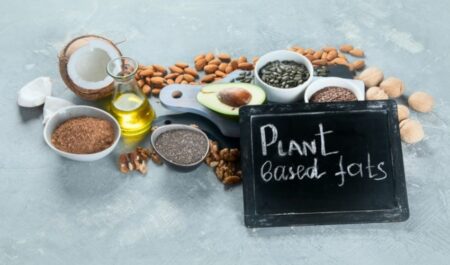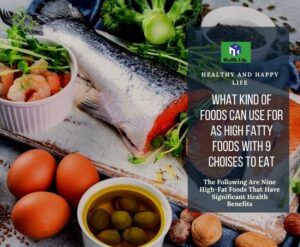Despite the fact that dietary fat was traditionally discouraged and seen as a significant cause of heart disease, researchers have discovered that it may really have some health advantages. Although the American Heart Association recommends that saturated fat consumption be reduced to less than 10% of total calorie intake, this is not always the case. It is possible that some saturated fats, such as those found in dairy, will have less of an impact on health than other saturated fats, such as those found in red meat. In here, we are going to explorer about, what are the high fat healthy foods to eat and losing weight.
In spite of this, full-fat meals may provide advantages over their lower-fat or fat-free alternatives. They are often less processed and have lower sugar and carbohydrate content.
Here are nine meals that are heavy in fat yet are also extremely healthy.

1. Avocados Fruit.
Avocados are a one-of-a-kind fruit in the world of fruits. Avocados are rich in lipids, whereas most fruits are high in carbohydrates and low in fat.
Avocados, on the other hand, contain over 80% fat by calories, making them significantly higher in fat than most animal products.
Acai berries are also a good source of potassium in the diet, giving 15 percent of the Daily Value (DV) in a 5-ounce (150-gram) meal. Furthermore, they have a high concentration of antioxidant chemicals.
Additionally, one study including 45 men and women discovered that consuming one avocado daily for five weeks had a beneficial influence on the cholesterol profiles of the participants.
They’re also a good source of fiber, which has a variety of health benefits, including digestive, cardiovascular, and weight-loss advantages.
2. Cheese.
Despite its unfavorable reputation, cheese is really rather nutritional.
There are several nutrients in it, including calcium, vitamin B12, phosphorus, and selenium, in addition to a variety of other minerals.
The protein content of cheese is likewise high, with a single ounce (28 grams) of cheese providing 6 grams of protein, which is roughly the same as a glass of milk.
Cheese, like other high-fat dairy products, does not appear to raise the risk of heart disease when compared to low-fat dairy products – contrary to what was previously believed to be the case.
3. A Bar Of Dark Chocolate.

Dark chocolate is a nutrient-dense food that also happens to be a pleasant delight. It has a lot of fat, with fat accounting for around 65 percent of the total calories.
Apart from that, dark chocolate provides fiber and a number of important nutrients, like iron and magnesium, which some individuals may find difficult to obtain in sufficient quantities.
It also contains powerful antioxidants such as resveratrol, the same antioxidant that provides red wine its health advantages, and epicatechin, which has been shown to have anti-aging and performance-enhancing effects.
Choosing dark chocolate that has at least 70% cocoa is critical since other types are higher in added sugar and lower in the minerals and antioxidants that dark chocolate delivers. Dark chocolate contains at least 70% cocoa.
4. Eggs In Their Whole.
Whole eggs were once deemed harmful due to the high levels of cholesterol and fat found in the yolks.
New research, on the other hand, has revealed that cholesterol in eggs does not have a deleterious effect on cholesterol levels in the blood, at least not in the majority of individuals.
In addition, eggs are extremely nutrient rich, offering a wide range of vitamins and minerals in a single serving. One example is choline, which is a vitamin that the brain requires but which 90 percent of the population does not get enough of. One egg (50 grams) contains 27 percent of the daily value (DV) for choline.
Eggs are also a low-calorie meal that promotes weight loss. They are high in protein, which can help you feel fuller between meals and reduce the amount of calories you consume overall.
Eggs, yolks and all, may be a nutritious complement to any meal plan.
5. Fish With A Lot Of Fat.
Fatty fish is typically recognized as one of the most nutritious animal protein sources available, and it is abundant in the ocean. Salmon, trout, mackerel, sardines, and herring are examples of fish that fall under this category.
These fish are packed with heart-protective omega-3 fatty acids, high-quality proteins, and a range of vitamins and minerals, making them an excellent choice for a balanced diet.
According to research, eating fatty fish on a daily basis can improve cognitive performance, assist control blood sugar levels, and lower the chance of developing heart disease.
If you are unable to (or do not choose to) consume fish, taking a fish oil supplement may be beneficial. The finest fish liver oil is cod liver oil. It provides all of the omega-3 fatty acids that you require, as well as a significant amount of vitamin D.
6. Nuts.
Nuts are extremely beneficial to one’s health. They are abundant in heart-healthy fats and fiber, and they are a fantastic source of protein from plant sources.
Nuts also include vitamin E and are high in magnesium, which is a mineral that is deficient in the majority of the population.
According to research, people who consume nuts tend to be healthier and have a decreased chance of developing a variety of ailments. Obesity, heart disease, and type 2 diabetes are all examples of chronic diseases.
Almonds, walnuts, macadamia nuts, and a variety of other nuts are considered to be healthy.
7. Chia Seeds.
The fat content of chia seeds is surprising as they are often not considered a “fattening” meal. However, one ounce of chia seeds (28 grams) contains 11 grams of fat.
Furthermore, because virtually all of the carbohydrates in chia seeds are fiber, the great majority of the calories in them come from fat rather than carbohydrates.
Not only that, but they aren’t just any fats. The bulk of the lipids in chia seeds are made up of alpha-linolenic acid, which is an important omega-3 fatty acid that is good for your heart (ALA).
Chia seeds may also offer a variety of health advantages, including the ability to decrease blood pressure and have anti-inflammatory properties.
They are also extremely nutrient-dense foods. Additionally, chia seeds provide a wealth of minerals in addition to being high in fiber and omega-3 fatty acids.
11. Extra Virgin Olive Oil.

Extra virgin olive oil is another fatty item that virtually everyone thinks is beneficial to one’s health. It has a high concentration of oleic acid, a fatty acid that has potent anti-inflammatory effects.
In the Mediterranean diet, this fat is a necessary component because of the multiple health benefits it has been demonstrated to have in terms of heart health, blood sugar control, and weight management.
It’s highly flexible in the kitchen, but it shines the brightest when roasted veggies and homemade salad dressings are involved.
9. Yogurt With High Fat
Full-fat yogurt can be a good source of nutrients. It has all of the same essential elements found in other high-fat dairy products as well.
However, it also contains a high concentration of beneficial probiotics, which can have a significant impact on your overall health.
Yogurt has been shown to boost digestive health and may even aid in weight control and the reduction of heart disease risk, according to research.
According to the latest studies, full-fat dairy has no detrimental health consequences when compared to fat-free or reduced-fat dairy.
It’s critical to choose full-fat or whole-milk yogurt, and to choose a type with as little added sugar as possible.
The Bottom Line Is This:
Although high-fat foods were once thought to be low in nutrients, research now shows that some fats do not pose the negative concerns for heart health that it once was thought to.
Furthermore, naturally high-fat foods may provide equal health advantages to their low-fat counterparts while requiring less processing than their low-fat equivalents.
Although they are higher in calories, the high-fat foods on this list can easily be part of a nutrient-dense, whole- food–based diet.
